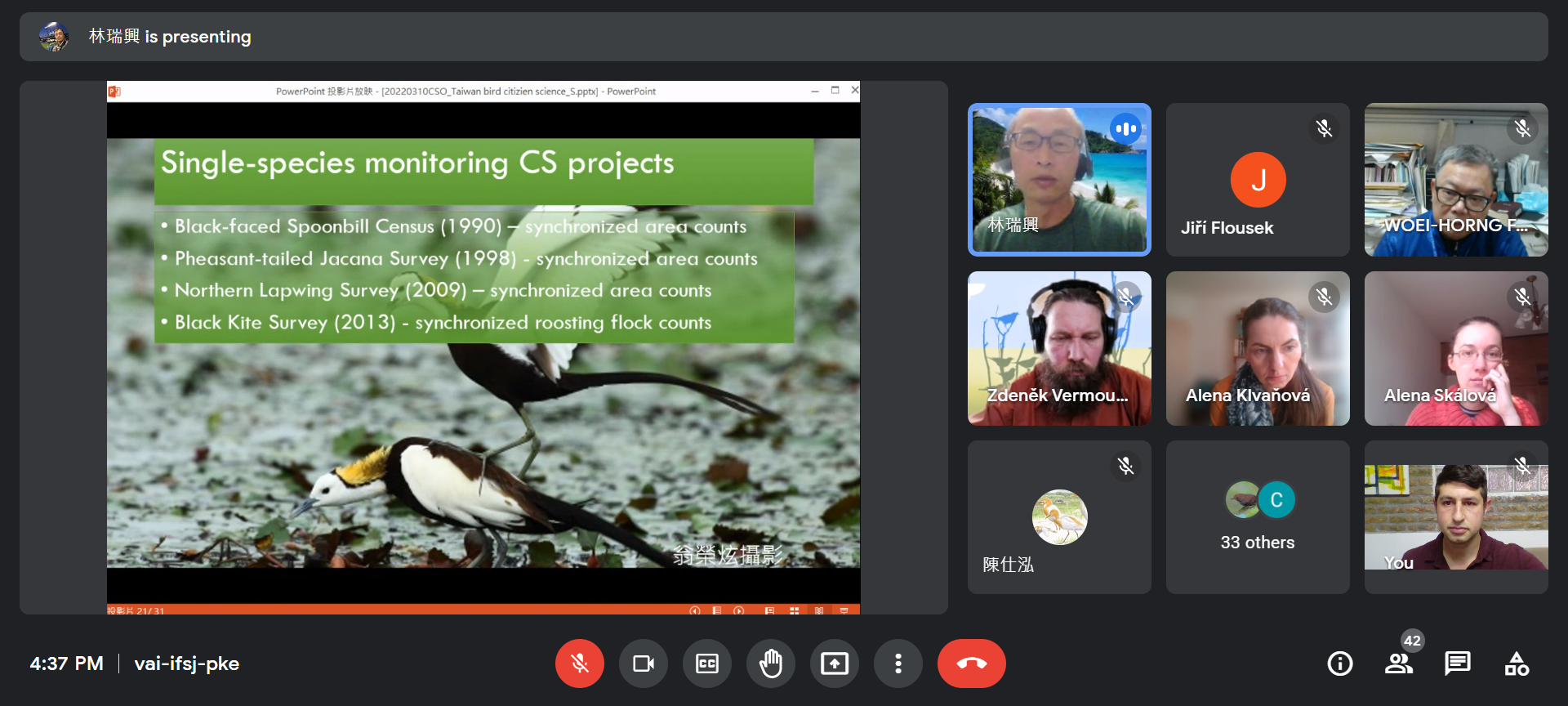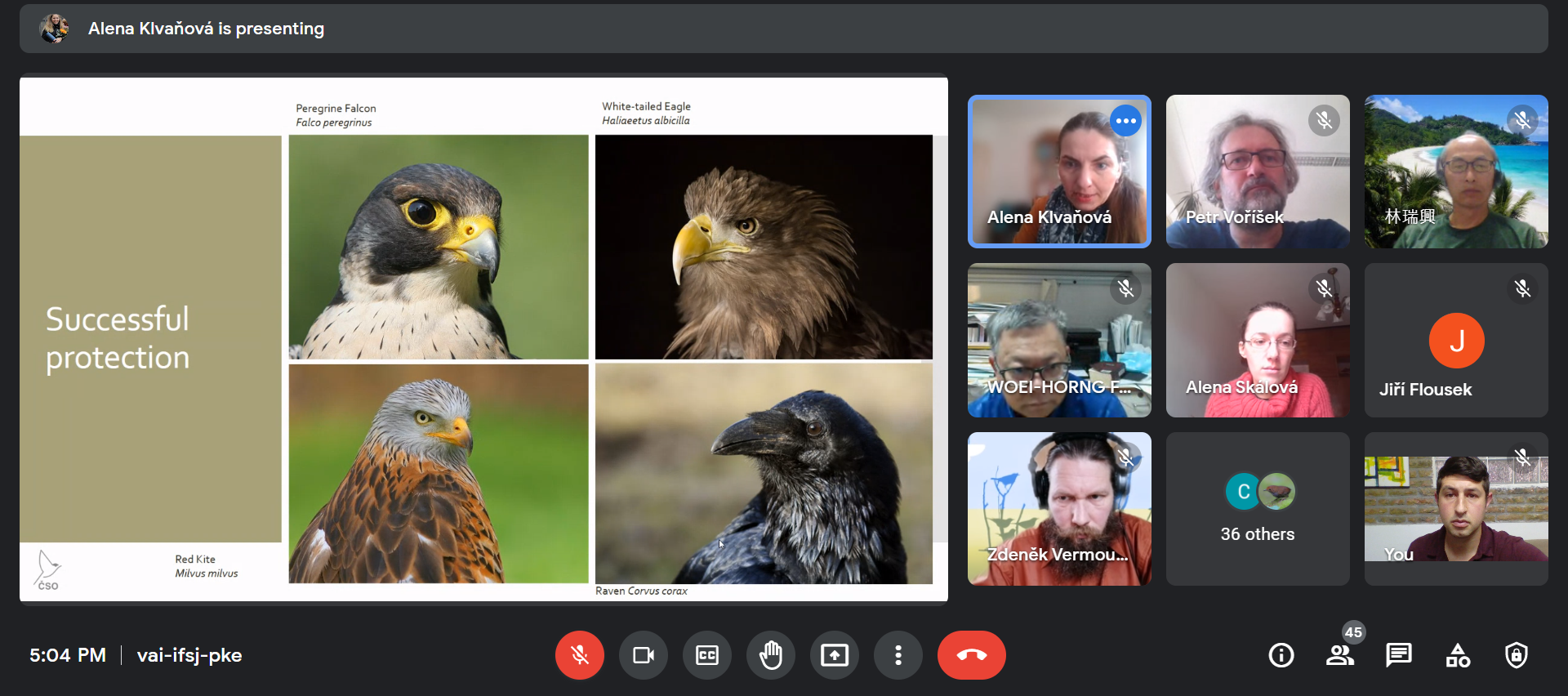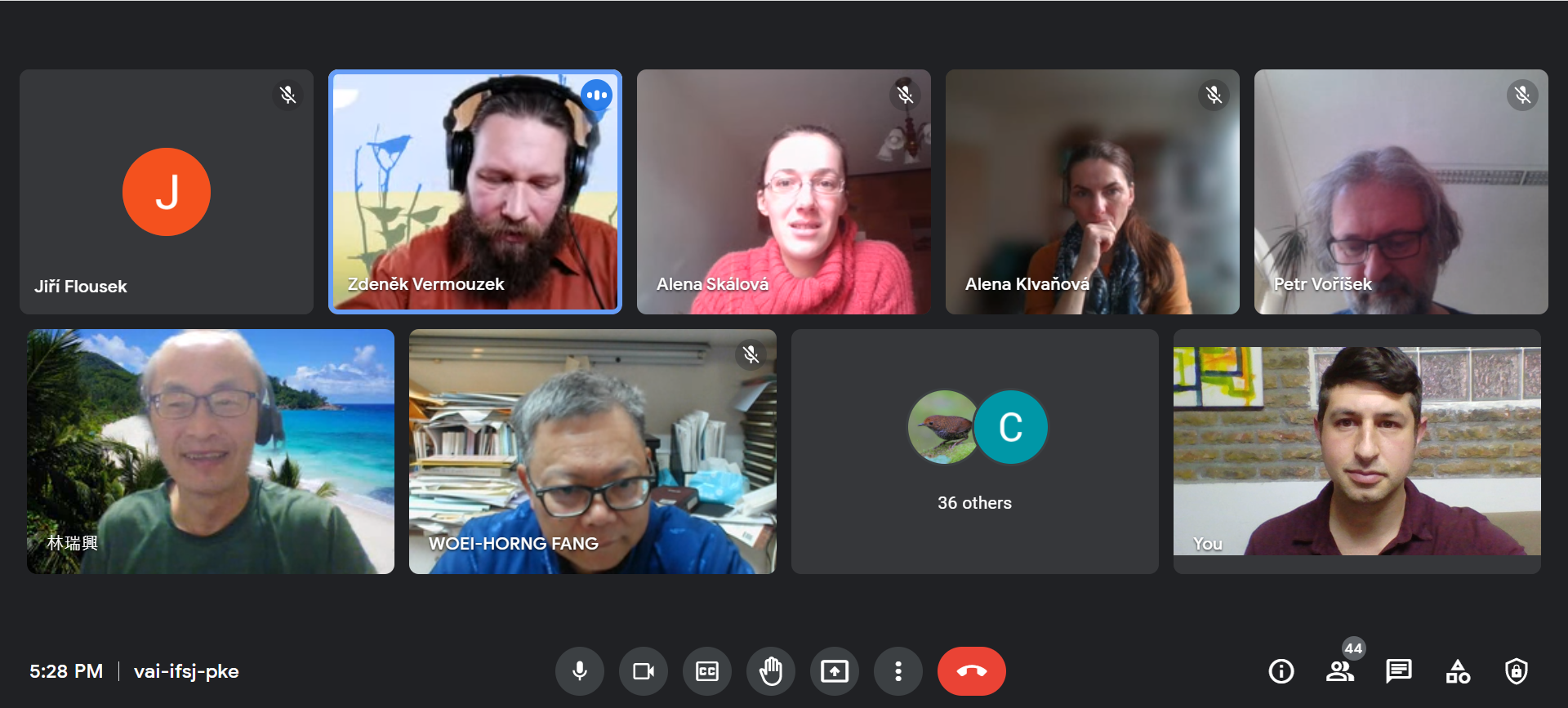Webinar brings Taiwanese and Czech Bird Research Communities Closer Together

By Scott Pursner
On Thursday March 10, 2022, the Taiwan Wild Bird Federation, Taiwan Endemic Species Research Institute, Czech Society for Ornithology and related individuals met virtually for the first time to discuss birds, conservation issues, and citizen science in Czechia and Taiwan. The event was organized by the TWBF with support from the CSO and TESRI. A total of 46 people attended.
During the event, which was hosted by TWBF Director of International Affairs Scott Pursner, speakers first introduced their country and avifauna. This was followed by an introduction to each country's citizen science projects for birds. Before the talks began, TWBF president Dr. Fang Woei-horng and CSO president Dr. Jiří Flousek, provided some inspirational words to the participants.
The first presentation was made by Scott Pursner. He shared information about Taiwan and its avifauna including the current plans for Taiwan's next national bird report, the State of Taiwan's Birds 2022. He was followed by Scott Lin, a research fellow and Division Chief of Habitats and Ecosystems for TESRI. Lin provided an overview of citizen science in Taiwan before giving a more in-depth introduction to two of Taiwan's most well-developed citizen science projects for birds, the Taiwan Breeding Bird Survey and the Taiwan New Year Bird Count.

Dr. Scott Lin discusses citizen science projects for birds in Taiwan
During the Q and A session after, the presenters were asked various questions, including why forest birds’ numbers seem to be increasing in Taiwan. Lin admitted that though it could be due to fewer threats to their habitat, it could also be a result of climate change, with fewer typhoons reaching Taiwan. He added that more research was needed.
The first presentation about Czechia was done by Dr. Alena Klvaňová, CSO's Head of the Department of International Research and Monitoring. She discussed how Czechia has a very different climate and geography from that of Taiwan. She explained Czechia has a broad range of habitats such as deciduous forests, steppes, and wetlands. As opposed to the 674 species which occur in Taiwan, Czechia sees 400, with 40% being non-breeding birds. Klvaňová then talked about strong decline in farmland birds, with numbers being just 60% of what they were in the 1980s. She did finish on a high note though, sharing about conservation projects for species like common terns and little owlets. She also highlighted the successful protection efforts for peregrine falcons, white-tailed eagles, red kites, and ravens.

Dr. Alena Klvaňová discusses birds and their conservation in Czechia
Finally, to discuss CSOs citizen science initiatives, Mrs. Alena Jechumtál Skálová, the CSO Citizen Science Specialist and Mr. Zdeněk Vermousek did a joint presentation. Skálová began by introducing some of the simpler projects currently done in Czechia including taking photographs of raptors at power poles and a campaign to cover glass bus stops to avoid bird-glass collisions. She also discussed the Winter Bird Count, CSO's most popular citizen science event. Each year it draws hundreds of thousands of participants who record the birds they see for an hour during a pre-selected weekend. Vermousek then presented about Common Bird Monitoring in Czechia. It is a more complicated citizen science project which requires training due to the survey methods required. This data is used to map population changes, estimate populations, and connect species with habitats. According to Vermousek, it is addictive, with people returning annually to do it.
During the second Q and A session, an interesting conversation about declines in farmland birds took place. When asked about the causes of decline in Czechia, the speakers explained it came from a combination of factors, namely, agricultural homogenization and intensification as well as the use of agrochemicals. Yet in Taiwan, the situation is a bit different, with recent research showing that farmland is disappearing as the result of competition between various economic sectors. This has a great impact on bird species as many of Taiwan's wetlands are agricultural wetlands.

During the discussion at the end of the session.
The session ended on a good note, with everyone agreeing that they should hold future sessions to dive deeper into the topics discussed that day. Dr. Fang summed up the sentiment of the participants in his opening greeting to the participants. He said, "It is my hope that the conversations had today can develop into not just an ongoing dialogue and partnership regarding bird science and conservation but a closer friendship between our two countries as well."
